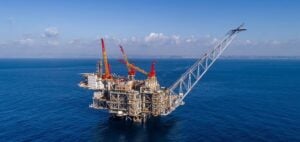The energy relations between Senegal and Mauritania reached a new milestone with the signing of an agreement on local content for the Grand Tortue Ahmeyim (GTA) gas project on January 13, 2025. This strategic commitment was formalized in Nouakchott by Mohamed Ould Khaled, Mauritania’s Minister of Energy, and Birame Soulèye Diop, his Senegalese counterpart.
The GTA project, located at the maritime border between the two countries, represents a promising source of natural gas and a lever for economic transformation. The agreement aims to maximize local benefits by fostering job creation, developing local skills through training programs and technology transfers, and establishing a transparent mechanism to monitor progress.
A Model of Regional Cooperation
During the bilateral meeting, the ministers praised the harmonious collaboration between the technical teams of both nations, described as a model of efficiency. The start of gas production on December 31, 2024, marks the entry of both countries into the circle of natural gas producers. This historic step places Dakar and Nouakchott before a unique opportunity to build an inclusive gas industry.
The terms of the agreement align with a shared vision of resource development. “This agreement reflects our shared commitment to mobilizing our resources for the benefit of our populations,” said Mohamed Ould Khaled, expressing the ambition of both governments to translate this cooperation into tangible benefits.
Multiple Challenges Ahead
Despite the promising prospects, significant challenges remain. The effective implementation of the provisions outlined in the agreement will require enhanced coordination among stakeholders. The involvement of local businesses will be critical to ensuring that commitments translate into tangible economic benefits.
Simultaneously, it will be essential to ensure that the monitoring of local content mechanisms adheres to the set objectives while remaining aligned with national public policies. Achieving this balance will be crucial for making the GTA project a model of sustainable development for the entire region.





















